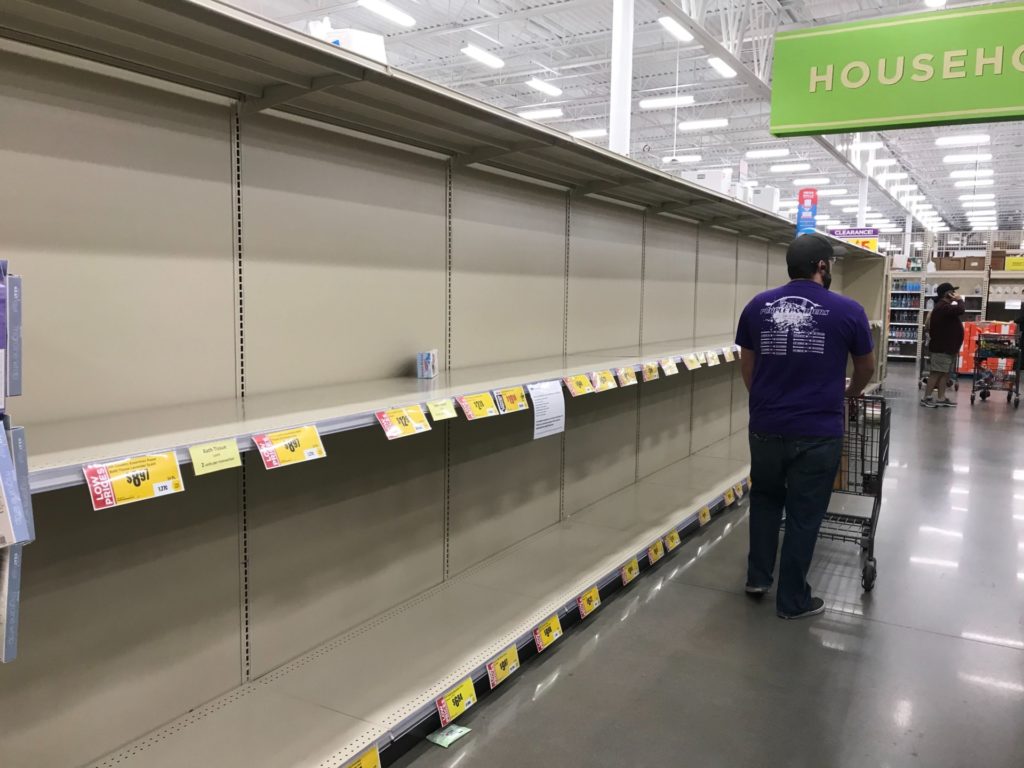Source: AgriLife Today | April 10, 2020
From empty bread shelves and meat cases to milk dumping, the food supply chain has taken a beating during the COVID-19 pandemic. Texas A&M AgriLife takes a closer look at the pandemic’s agricultural market interruptions in this three-part series.
Disruptions caused to the food and agriculture sector’s supply chains by the COVID-19 pandemic are being analyzed by the Texas A&M AgriLife-led Center of Excellence for Cross-Border Threat Screening and Supply Chain Defense Center, or CBTS, a Department of Homeland Security Science and Technology Center of Excellence.

Whether it was the empty meat cases in the supermarkets, the milk market crashing as dairy owners had to dump milk due to lack of demand or grain markets showing volatile reactions, CBTS will exam the critical issues brought to light by this pandemic.
“The disruptions caused by the COVID19 pandemic and the actions taken by governments and industries to mitigate the impacts of the disease provide disturbing examples of the challenges our food and agricultural sectors face and remind us of the limits to just-in-time inventory practices when supply chains are disrupted,” said Greg Pompelli, Ph.D., CBTS director with Texas A&M AgriLife Research.
The CBTS was established by the Department of Homeland Security in October 2018 and Texas A&M University was named the lead of the consortium of U.S. academic institutions and other partners. The center’s mission is to help protect the global supply chain and reduce the risk of exposing people and infrastructures to biological threats.
“Because the pandemic’s impacts are unfolding before us, CBTS, a Department of Homeland Security (DHS) Science and Technology Center of Excellence, is working with DHS, academic and industry researchers to more fully assess the impacts of supply chain disruptions on the food and agricultural sectors.”
These projects will provide comprehensive insights about the pandemic’s impacts and identify critical issues that will lead to more resilient supply chains and industries in the future, he said.
Supply and demand issues
Pompelli said the apparent shortages of some goods in grocery stores are a combination of supply and demand, human behavior and some supply chain disruptions.
But while explanations about human behavior and supply and demand may help in many cases, the overall food and agriculture sector reactions are prompting CBTS to launch a series of studies on the food and agricultural sector’s supply chains.
“For items like toilet paper, human behavior is an important factor,” he said. “Much like we see in cities prior to forecasted snowstorms, people go to markets for basic food and paper products. No one wants to get caught short if they cannot get out, so they buy more than they normally would. Unfortunately for some products, lightly stocked or empty shelves reinforce consumer concerns and our desires to buy more just in case.”
Pompelli also said some of the increased demand for certain goods reflects usage patterns at home that are greater than they normally would be if everyone were back at work or school.
“Over the past few months, we have seen evidence of the problems that arise when normal supply chain operations falter,” Pompelli said.
Project goals and results
He said the goal of the project is to describe the complex paths of these impacts and understand the relationships across what previously seemed to be independent supply chains.
The results from the subprojects will provide assessments of the risks facing affected industries, develop initial estimates of the economic impacts within the food and agriculture sectors, and focus on key supply chains in which the pandemic’s impacts have been the most dramatic, Pompelli said.
“These insights will help stakeholders identify critical issues across industries, guide future research and expand our understanding of the supply chain risks we face beyond the horizon of the current pandemic,” Pompelli said.
